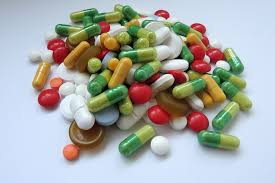
Medications to avoid two weeks prior to surgery:
Discontinue use of any nicotine products. This includes cigarettes, cigars, nicotine gum, and patches. Nicotine reduces the blood flow to the skin and may impair healing; and quitting smoking drastically improves the body’s response to surgery.
Stop using medications containing aspirin and NSAIDS (non-steroidal anti-inflammatory medications, such as ibuprofen, Alleve, Advil) prior to (and following) surgery. Aspirin and NSAIDS thins the blood and can produce excess bleeding and bruising. Be sure to read the labels of any over the counter remedies you regularly take as many commonly-used medications contain aspirin. (e.g., Alka Seltzer) For the same reason, also avoid Vitamin E supplements and red wine prior to surgery.
Stop all herbal medications before surgery. The most common herbs used are Echinacea, Ephedra, Garlic, Ginseng, Ginkogo, Kava, St. John’s Wort, and Valerian. They may adversely effect anesthetic drugs, prolong bleeding and impair healing after surgery.
Medications to start two weeks prior to surgery:
Begin using an Arnica supplement 7 days prior to surgery and continue for two weeks following surgery. Arnica is a naturopathic remedy that not only helps prevent bruising but also aids in clearing bruising that has occurred faster after surgery. We have both orally-taken Arnica tablets and topical Arnica patches and gel tubes available at my OLOGY Spas for this purpose.
Begin a good multivitamin supplement at least two weeks or more ideally one month, prior to surgery. A normal dose of vitamins and minerals combined with a diet high in protein provides the necessary building blocks for wound healing.
Begin high dose Vitamin C supplements. (2 grams per day) both before and after surgery. This well known vitamin is the key nutrient needed for making collagen after surgery, which is what heals your tissues together. Because Vitamin C is water-soluble, there is no risk of overdosing on it. What is not used by your body will be excreted in your urine.
You might also consider adding Vitamin K to your diet. This fat-soluble vitamin plays an important role in blood clotting and can be found in spinach, broccoli, and kiwi.
Dr. Barry Eppley
Indianapolis, Indiana


